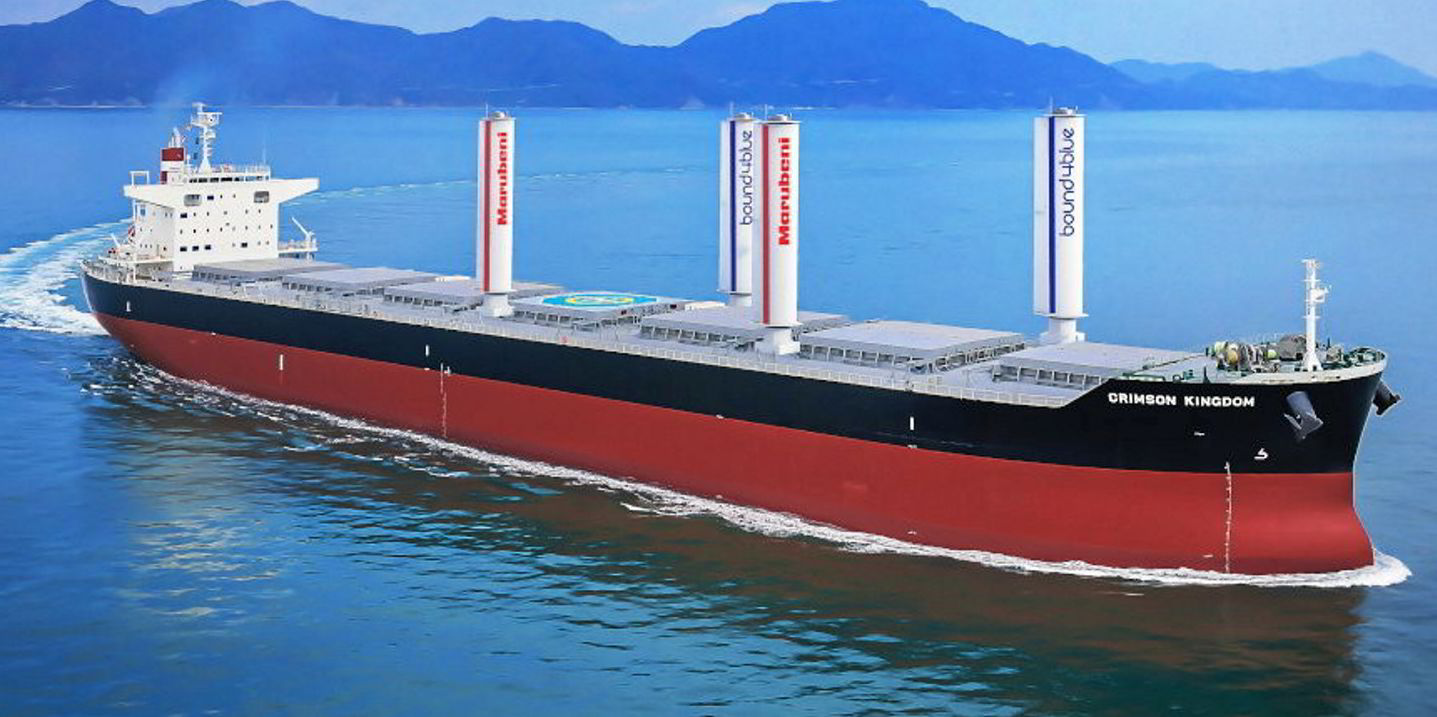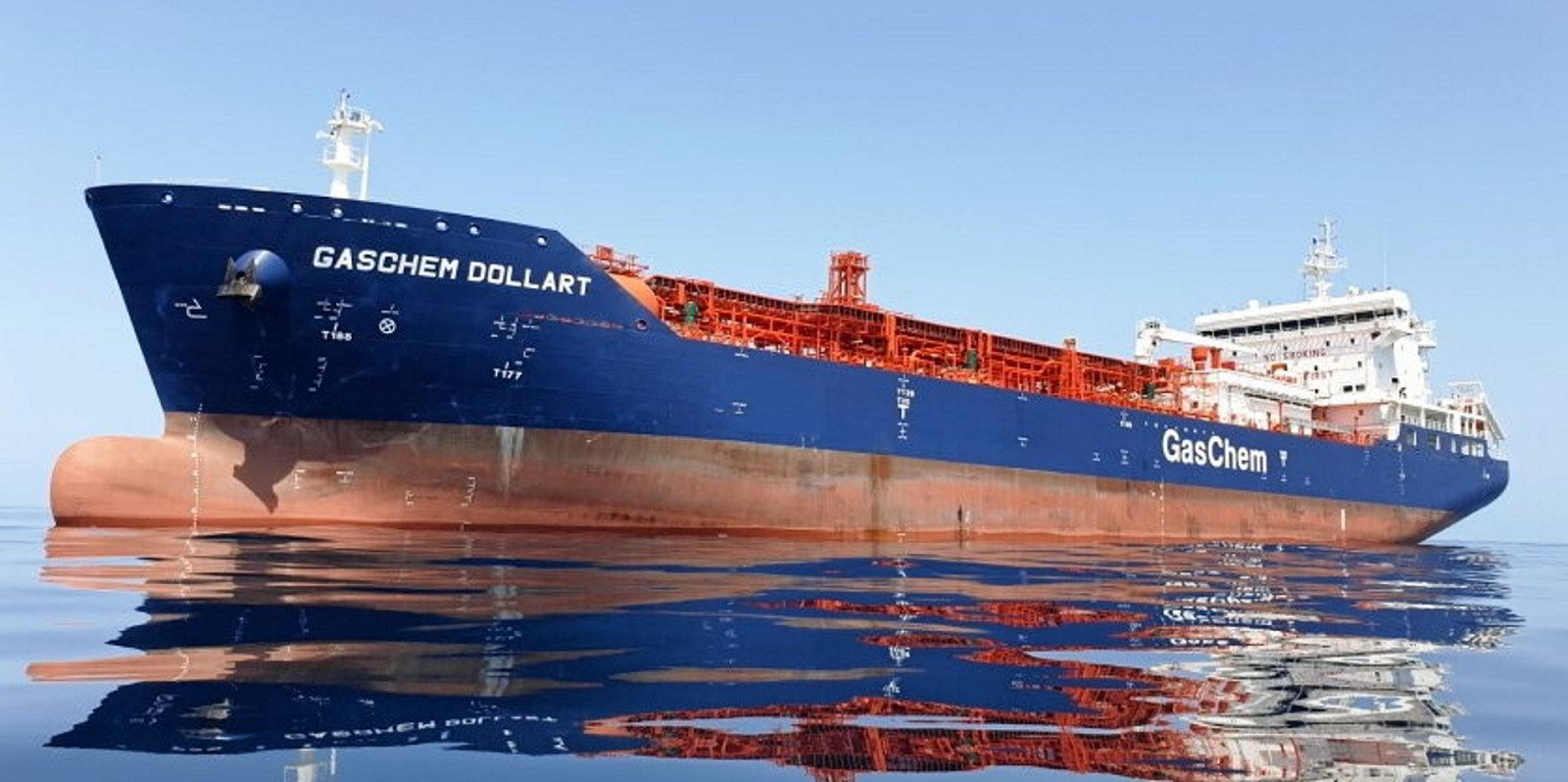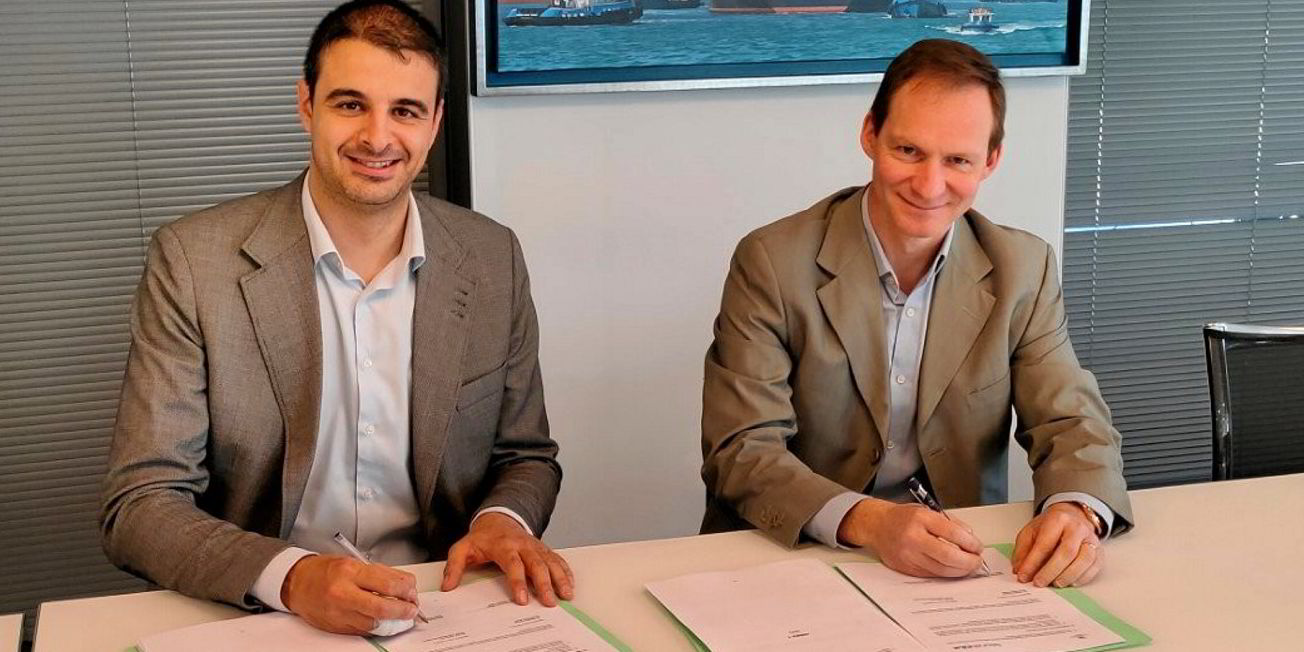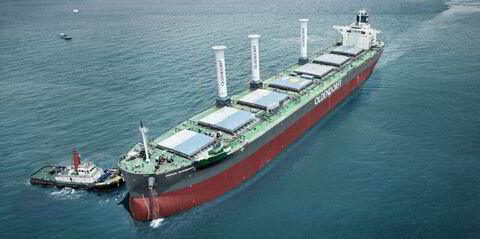Marubeni Corp is to trial wind-assisted propulsion on one of its panamax bulkers under a deal with Spanish company bound4blue.
The 84,860-dwt Crimson Kingdom (built 2016) will be fitted with four 26-metre-high suction sails in the first such trial by the Japanese trading house giant.
The vessel will be retrofitted in 2023/24 with what is expected to be the largest suction sail installation in the world and the first panamax bulker using suction sails.
Following the installation, the ship will be entered in the Torvald Klaveness and Marubeni-run panamax bulker pool Baumarine.
The suction sails are expected to reduce the ship’s fuel costs and annual CO2 emissions by up to 20% in “favourable trade routes”, bound4blue said.
They claim it will also improve the vessel’s Energy Efficiency Existing Ship Index (EEXI) and Carbon Intensity Indicator (CII).
“The installation on Crimson Kingdom will probe the potential of our suction sails on bulk carriers, a strategic segment for our company,” said bound4blue chief executive Jose Miguel Bermudez.
“This agreement with Marubeni will enable us to scale up our technology to the next level, installing our 26-metre units on a bulk carrier for the first time and giving us the opportunity to partner with one of the most important international shipowners.”
Yasutomo Miyake, general manager, ship project department of Marubeni, said the Japanese shipowner was partnering with bound4blue to install their suction sails on the Crimson Kingdom, due to the financial potential that their technology represents for its fleet while having a high decarbonisation impact.
In May 2022, French shipowner Louis Dreyfus Armateurs (LDA) agreed to trial bound4blue’s suction sails on one of its ro-ro vessels.
bound4blue says its suction sails produce six to seven times more lift than conventional sails by sucking in a small amount of air that adheres the airflow to the unit and generates lift with low drag.
In March, Dutch shipowner Amasus Shipping said it would retrofit two 17-metre-high suction sails on the 2,850-dwt general cargo vessel Eems Traveller (built 2000).





